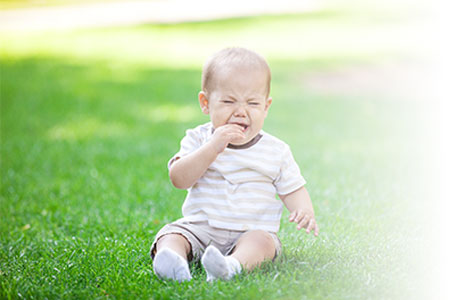EFFECTS OF PERINATAL DEPRESSION
 Perinatal Depression is a medical condition. Leaving medical conditions such as heart disease or diabetes untreated causes health complications. The same is true for Perinatal Depression.
Perinatal Depression is a medical condition. Leaving medical conditions such as heart disease or diabetes untreated causes health complications. The same is true for Perinatal Depression.
Women who experience depression during pregnancy may be less likely to be mindful of good prenatal care and nutrition and are more likely to have a premature delivery, restricted fetal growth and infants with low birth weight, and problems with breastfeeding and bonding with their infant. There is also a heightened risk of pre-eclampsia during pregnancy.
Studies have shown that babies born to depressed mothers cry excessively and are more inconsolable, have poorer growth and increased risk of infection, and have more difficult temperaments as children with more distress, sadness, fear, shyness, and frustration. Additionally, there are potential long term effects for children of mothers with untreated depression such as issues with cognitive development, problems in school, behavioral problems, and depression.
Perinatal Depression can also wreak havoc in the family dynamics. It may impair communication between partners and even may contribute to depression in the mother’s partner as well.
Perinatal Depression may lead to self-harm, suicide, or harming the baby if left untreated. It is important to catch perinatal depression early and receive treatment in order to minimize any of the complications.
LEARN MORE
There are an abundance of resources and additional information on Perinatal Depression available on the web. Here are a few educational resources that we found to be particularly interesting and helpful.
This is a FAQ sheet from the American Congress of Obstetricians and Gynecologists website. It has information about what postpartum depression is, causes, and treatment options. It also provides links to other websites with information on postpartum depression. Click here to visit the American Congress of Obstetricians and Gynecologists website to access this document: American Congress of Obstetricians and Gynecologists
This website is a perinatal focused portion of a larger toolkit for depression education that includes information on treatment options and risk factors for Perinatal Depression, as well as information on other similar and related depressive disorders. Click here to visit the Depression Toolkit website to access this document: Depression Toolkit
Although this website is for an organization in San Diego, California and all of the resources (events, support groups, etc.) listed are local to San Diego. However, this site does have downloadable brochures in Spanish as well as a great section explaining how fathers are affected by Perinatal Depression. Click here to visit the Postpartum Health Alliance website to access this document: Postpartum Health Alliance
Dr. Christina Hibbert is a clinical psychologist, author, and speaker who specializes in women’s mental health. On her website, there is a section committed to postpartum depression with over twenty links for further education about postpartum depression for mothers, for fathers, treatment options, and other support options. Click here to visit Dr. Christina Hibbert’s website to access this document: Dr. Christina Hibbert